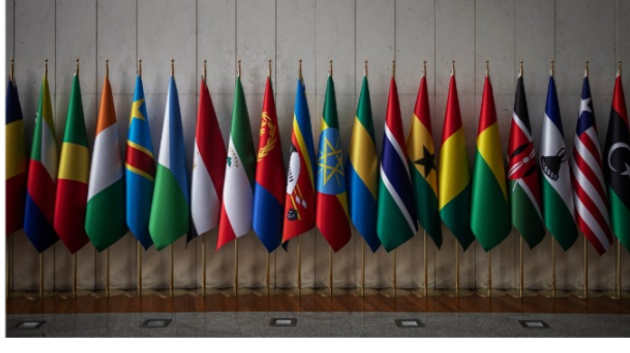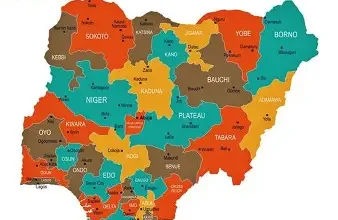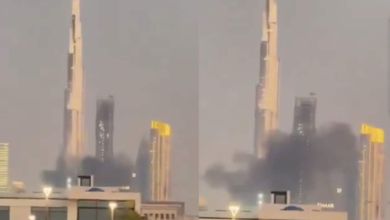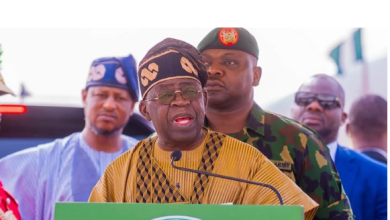Coup. AU suspends Madagascar over military takeover

The African Union has announced the immediate suspension of Madagascar following a military takeover that has plunged the island nation into its deepest political crisis in over a decade.
Speaking to AFP on Wednesday, African Union Commission Chairperson Mahamoud Ali Youssouf confirmed the decision, citing the “unconstitutional change of government” after Colonel Michael Randrianirina, head of the elite CAPSAT unit, seized control in the wake of President Andry Rajoelina’s impeachment.
“The country is suspended with immediate effect,” Youssouf said, aligning with the AU’s stance on unconstitutional seizures of power.
Madagascar’s constitutional court on Wednesday confirmed Randrianirina as transitional president, legitimizing a military-backed government just hours after lawmakers voted to impeach Rajoelina.
The colonel, previously jailed in 2023 over alleged coup plots, is now scheduled to be sworn in during a ceremonial session of the court on Friday.
The power shift comes amid weeks of nationwide protests led largely by youth groups frustrated with severe shortages in water and electricity.
The demonstrations culminated in a dramatic parliamentary vote on Tuesday that ousted Rajoelina, who first rose to power himself through a military-backed takeover in 2009.
In the chaotic aftermath, the CAPSAT military unit swiftly moved into the capital, Antananarivo, to take control. Armed vehicles surrounded key government buildings as the president disappeared from public view.
The 51-year-old Rajoelina is believed to have fled the country.
In a pre-recorded address aired Monday from an undisclosed location, he said he was in a “safe place” to protect his life and continued to deny any wrongdoing.
Reports circulating in French and Malagasy media suggested he may have received assistance from France, Madagascar’s former colonial ruler.
Rajoelina’s office has since rejected the legitimacy of the court’s decision, calling it “illegal, irregular, and unconstitutional.”
In a televised address, Colonel Randrianirina defended the military’s intervention, insisting it was not a coup but a “necessary act of responsibility” to rescue the country from collapse.
“This wasn’t a coup. It was a case of taking responsibility because the country was on the brink of collapse,” he said.
The new leadership, operating under the self-styled Presidential Council for the Refoundation of the Republic of Madagascar, has pledged to organise elections within 18 to 24 months.
Randrianirina also said consultations were underway to appoint a prime minister and form a transitional government.
The colonel, a long-time critic of Rajoelina, appears to be positioning himself as a reformist leader willing to collaborate with civil society and youth movements.
On the streets of Antananarivo, the situation remained calm on Wednesday, a stark contrast to the violent confrontations that preceded the power shift.
A peaceful concert was held at the symbolic Place du 13 Mai once the epicenter of anti-government protests.
Youth groups, especially the Gen Z movement that spearheaded the demonstrations beginning September 25, have welcomed the military’s intervention.
The group, which has used social media platforms like Facebook to rally support, praised Randrianirina’s willingness to “listen to the people.”
“We’re worried about what comes next, but we’re savouring this first victory that gave us hope,” said Fenitra Razafindramanga, 26, captain of Madagascar’s national rugby team.
In the northern city of Antsiranana, citizens expressed relief over Rajoelina’s ouster.
“It feels like we’ve just been released from prison,” said Muriella, a local entrepreneur. “This is also a message to his successor: learn from this and don’t make the same mistakes.”
Reactions from the international community have been swift. The United Nations issued a statement expressing “deep concern” over the unconstitutional transfer of power.
The African Union’s suspension of Madagascar added to the growing list of countries in the region facing sanctions over military coups, including Mali, Niger, Gabon, Guinea, and Burkina Faso.
Madagascar’s latest upheaval now placed it firmly within a troubling trend of democratic backsliding across several former French colonies in Africa since 2020.
Observers say all eyes will now be on how the transitional government navigates the next two years whether it delivers on promises of reform or consolidates power like others before it.
More updates are expected in the coming days as Colonel Randrianirina formally assumes the presidency.



